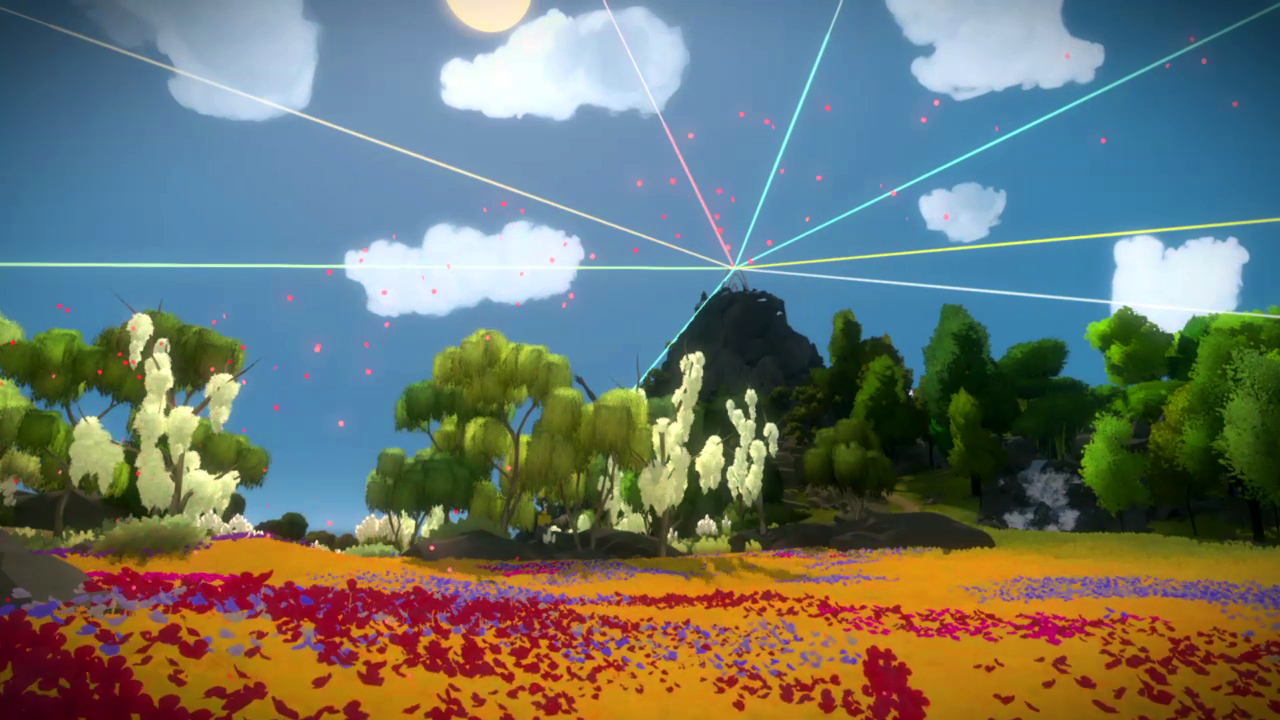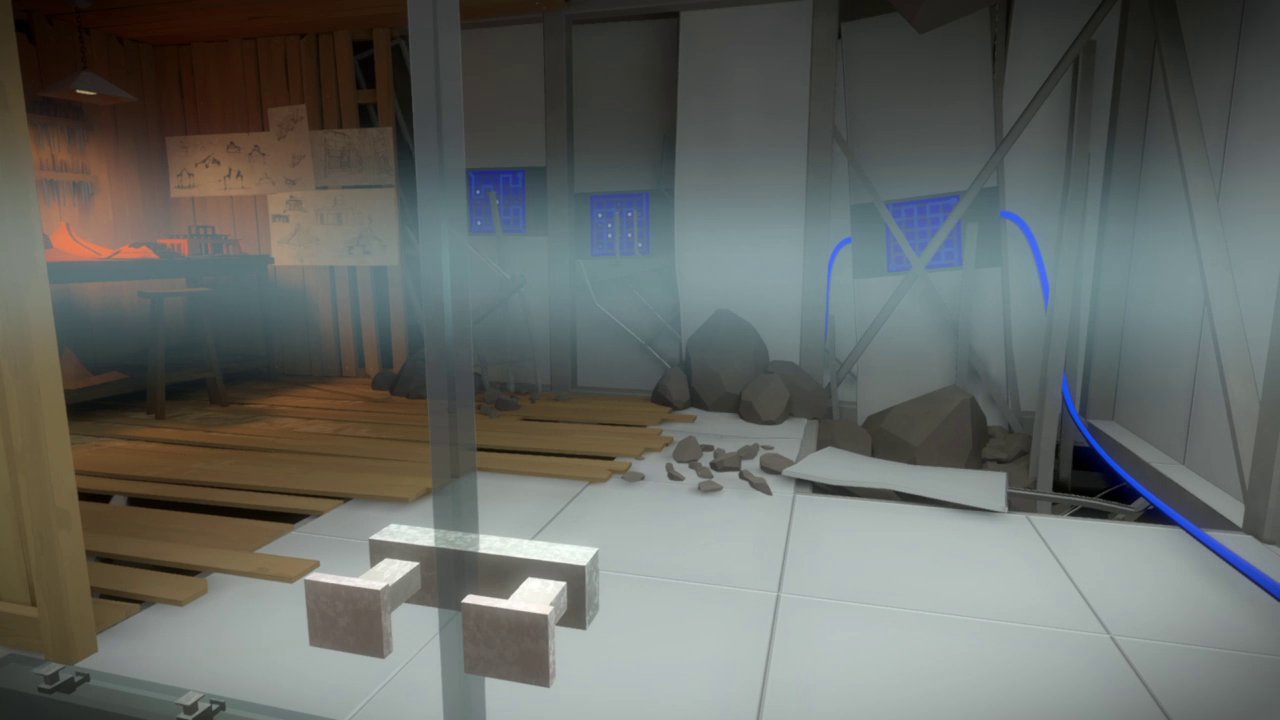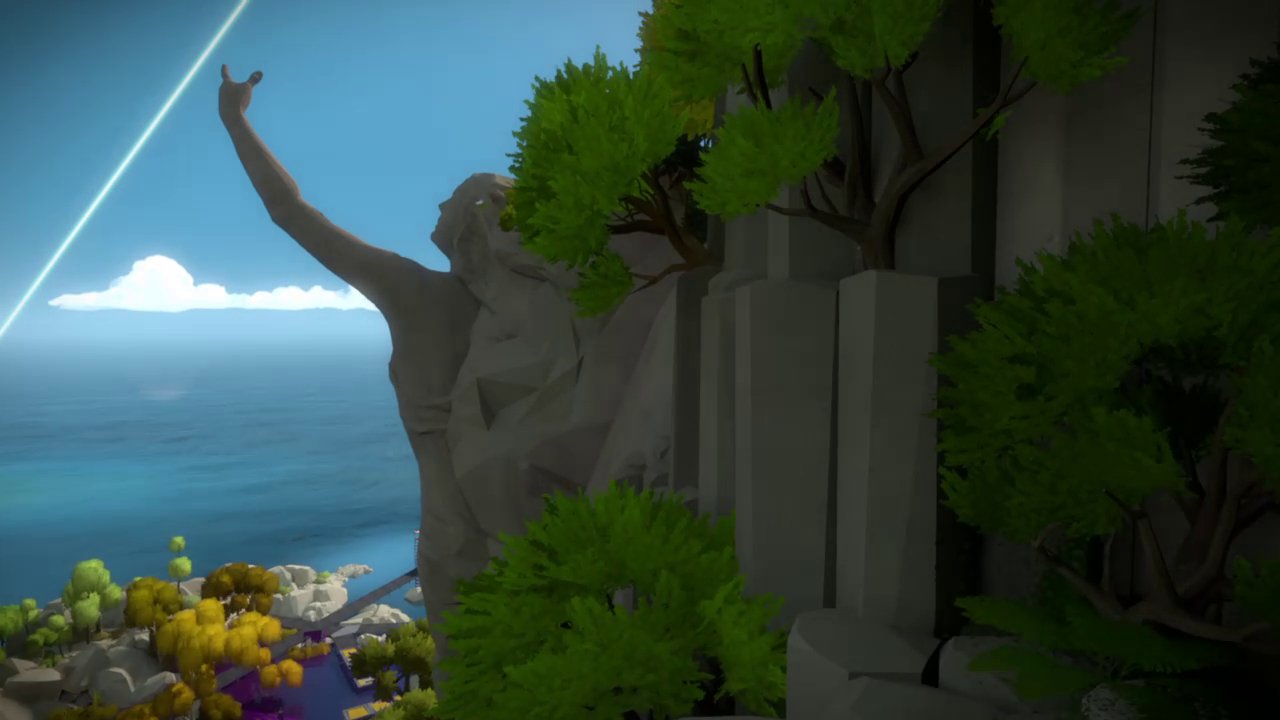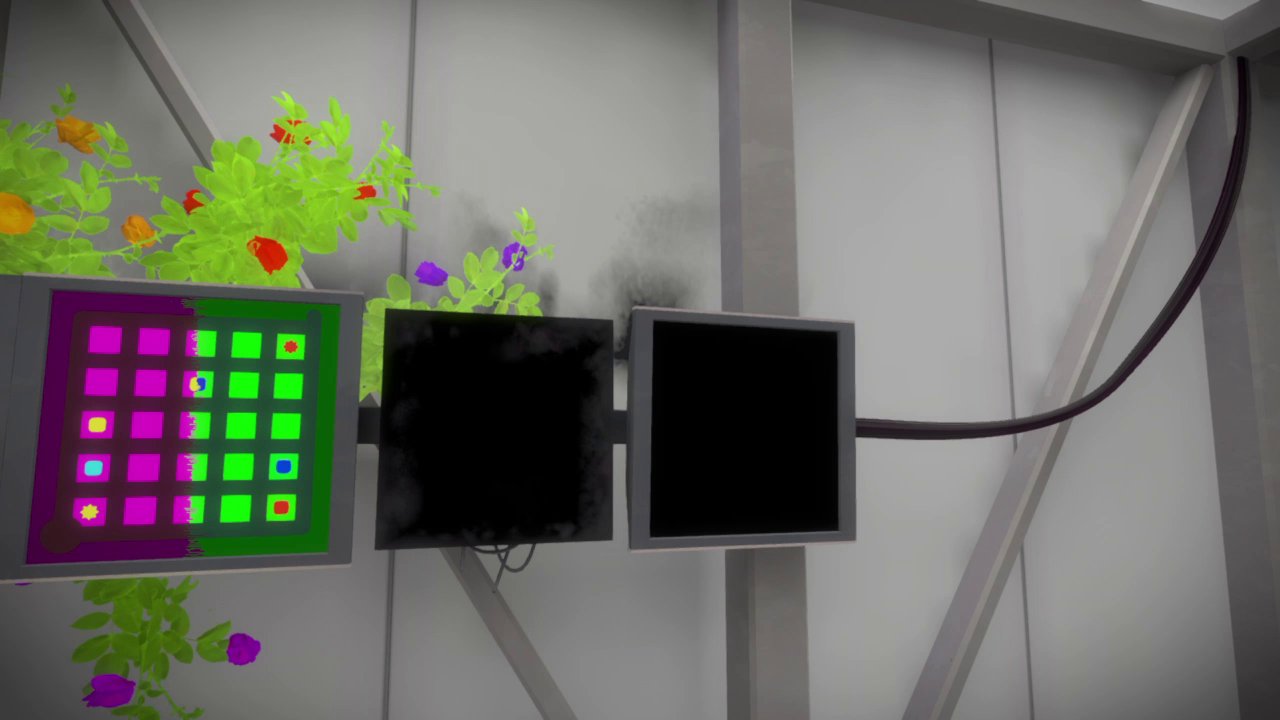The Witness: Finding forgiveness in the finale

Warning: Spoilers for The Witness ahead
Besides those increasingly infamous Tetris block puzzles, the mountain is bound to be the biggest stumbling block for anyone playing The Witness. After hours spent drawing lines on puzzle panels and deciphering the rules associated with certain shapes and colors, delving into the sterile, almost Aperture-esque depths of the mountain serves as your final exam. But there's a catch: in addition to testing your cumulative knowledge, the mountain adds an extra layer of difficulty via visual tricks you've never encountered before. These glitched-out puzzle panels might drift or rotate as you attempt to traverse them, obscure your view, or bombard your eyes with a strobing rainbow of colors.
Encountering these puzzles can feel like a slap in the face. You've reached the finale of a game that rewards careful observation, full of static puzzles you can stare at for hours as you try to work out a solution. But gaze at some of the mountain's puzzles for more than a minute, and you'll probably be nauseous to the point of puking. Such stomach-turning gimmicks can feel like a stroke of cruelty from a game that's an otherwise patient, benevolent teacher, and the penultimate puzzle sequences are bound to frustrate... everyone, I'm guessing. It'll bring to mind the classic educational complaint of 'You never taught us this, so why is it on the test?' But - without trying to sound too much like some of the audio logs' flowery quotes - that frustration is the first step in the path to understanding, and ultimately overcoming, adversity.

You feel frustrated because of the pressure you're putting on yourself. This is the final area of the game, so you must be close to the ending; if you could just strong-arm your way through these final few brain-teasers, you'd be able to finally find the closure you're seeking (or not, but that's a different story). And as long as you hold on to that indignant sense that you deserve to see the ending because you've made it this far, you're bound to be stuck on those puzzles for a good long while, fixated on how unfair they seem instead of mulling over a method for moving past them.
What you need to do is forgive yourself for being frustrated. It's ok that you're stuck here; it's probably even expected, as every puzzle has been designed with specific intent. Accept that these puzzles don't align with what you're used to, and that they ask things of you that weren't a factor until now. Most crucially, just let it go. I don't mean abandon The Witness altogether and curse Jonathan Blow's name to the high heavens - only that there's no harm in disengaging from what feels like an impossible blockade. This is a concept seen throughout The Witness, from the open-ended structure of the island's puzzles to the audio recordings that encourage the Zen practice of emptying the mind. Distancing yourself from a present obstacle so you can perceive it differently is at the core of The Witness' philosophy - and sometimes, seeing a challenge in a new way first requires that you turn your back on it.

You always have the option to detach from the puzzle you feel like you're futilely bashing your brain against, and just wander off in the pursuit of some other kind of progress. I highly recommend giving it a try, because it worked wonders for me. Given that you only need to activate seven of the 11 lasers waiting at the end of each area, I'm certain that sheer curiosity will prompt most players to venture inside the mountain before they've completed every possible challenge outside of it. And in hindsight, it definitely feels like a calculated decision - not only to let players complete the game without near-total completion (unlike Braid), but also as a way to orchestrate the kind of experience I went through as a player.
After straining my eyes and exhausting my logical reasoning on the mountain's trials, I decided, y'know what, screw it - I'm going to go somewhere else entirely, and defy my urge to plow through what I believe to be the game's final challenge. You'd be amazed at how uplifting it was to ditch those panels, climb back up out of the mountain, and venture towards whatever loose ends I felt like tying up at the moment. Those perception-warping puzzles would still be there, waiting for me, but there was no hurry to rush and complete them. Taking a detour to see what I might discover elsewhere was like a detox session for the mind, washing away any sense of resentment at those particular puzzles and letting me get back in touch with the tranquility and exploration that made me fall in love with The Witness to begin with.
Weekly digests, tales from the communities you love, and more

And when you clear your head, you make that much more room to devise new solutions to the task at hand. After sleeping on it, I had a 'Eureka!' moment: tapping the PS4's Share button would allow me to freezeframe my gameplay footage, halting the strobing colors (and thus averting the threat of an epileptic seizure) to show me exactly what I needed to know. You can call it cheating if you so choose; I like to think of it as clarifying the solution using the tools available to me, no different than having a pencil and scrap paper handy (or in my case, shoddily drawn grids in MS Paint).
So if you're playing The Witness and you're stuck in the mountain, or you're dreading the thought of what might await you there, take heart. If you can make it inside the mountain, you have the wherewithal to make it all the way through, I promise. As Blow himself puts it: "You are smart, you can do it!" And if you've already passed these puzzles and resent that they were there at all, do what The Witness has been encouraging all along: try to see those difficulties in a different light. The mountain and the puzzles within aren't cheap tricks tailor-made to annoy you. They reinforce what you've been doing the whole time: adapting to a series of increasingly complex challenges. If the answer isn't leaping out at you right away, you can always take a break and come back to it later; maybe that's the solution in and of itself. But above all, accepting that you don't understand something is the first step to truly learning.
Lucas Sullivan is the former US Managing Editor of GamesRadar+. Lucas spent seven years working for GR, starting as an Associate Editor in 2012 before climbing the ranks. He left us in 2019 to pursue a career path on the other side of the fence, joining 2K Games as a Global Content Manager. Lucas doesn't get to write about games like Borderlands and Mafia anymore, but he does get to help make and market them.



